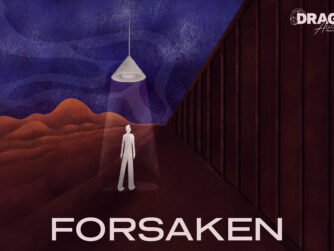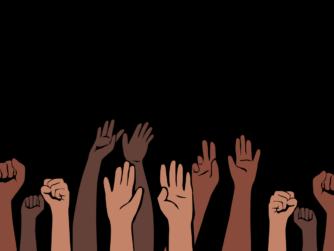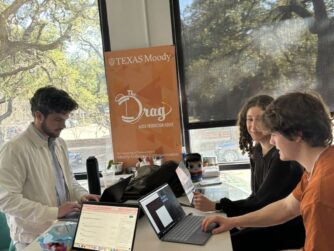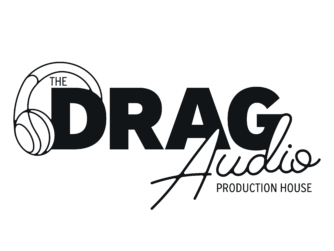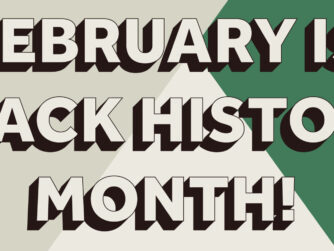On Sept. 30, 2010, chaos ripped through the South American nation of Ecuador — my home. To this day, the date is fresh on Ecuadorians’ minds. We remember it as 30S, short for 30 de septiembre.
Then-president Rafael Correa, who served as president from 2007 to 2017, confronted an angry mob of revolting policemen. Through a line-item veto of a law, Correa had stripped the police and military of some economic benefits they previously held. Correa’s decision didn’t sit well with the police, so they took to the streets to protest.
The events of that day changed my family forever. Correa was incredibly intolerant of critics. He called the press “the enemy of the people” years before former U.S. President Donald Trump did. And when an opinion columnist at El Universo, the Ecuadorian newspaper that my family has owned for more than 100 years, wrote an op-ed column calling Correa “the dictator,” he didn’t respond well.
My father Cheche — the publisher and co-owner of El Universo — was suddenly in the middle of the president’s crosshairs. Correa was determined to send him and my uncles to jail for an op-ed they did not write. Correa was also keen to bankrupt El Universo, the newspaper founded in 1921.
There isn’t a First Amendment in Ecuador like in the United States. My father, my uncles, the newspaper and the opinion columnist weren’t protected by law, and they were fighting against the most powerful man in Ecuador.
To understand what got Correa to this point, you have to understand that when Correa took office in 2007, Ecuadorian political institutions were incredibly weak. In the span of 10 years, Ecuador had been ruled by seven different presidents. One of them, Rosalía Arteaga, served as the first female president of Ecuador for just a few days. In 1998, the country adopted a new constitution, which happened to be the country’s 19th attempt at having a “founding” document. In 1999, Ecuadorians faced a terrible banking crisis, which forced many Ecuadorians to emigrate and others to lose their life’s savings. The Ecuadorian currency, the Sucre, suffered from absurd levels of inflation. As a result, Ecuador adopted the US dollar as its national currency in 2000.
And in the 10 years before Correa took office, the Ecuadorian people protested to oust a sitting president not once, but twice. The people of Ecuador overthrew Jamil Mahuad in early 2000. Lucio Gutierrez, an active protester in the revolts that led to Mahuad’s demise, would become the next elected president of the nation in 2002. However, in 2005, Gutierrez was also overthrown and ousted from the presidency.
It’s safe to say that once Correa took office in 2007, the country had a well-founded distrust in traditional politicians. Correa embodied the exact opposite. He was a disruptor, an outsider and someone who understood the inequality that still afflicts my country to this day. Correa had served — for a short spell — as the minister of economics and finance to his predecessor, Afredo Palacio. Even though he was not technically an outsider, considering his involvement in the previous government, Correa was nonetheless a fresh face in Ecuador’s political landscape.
Through an intense campaign, he was able to clinch the presidency after a surprising comeback in the general elections, to which he had entered as the underdog. Correa ran under a slogan that still follows him to this day — La Revolucion Ciudadana, or the citizen’s revolution. He constantly talked about the “long neo-liberal night” and the old and rotten political establishment. One of his campaign’s catchiest slogans was ‘Dale Correa!’ which translates to ‘Go Correa!’ but also serves as a pun: ‘Hit them [the political establishment] with a belt.’ After securing the presidency, Correa — once a promising candidate — was now en route to become Ecuador’s most powerful and popular president in recent memory.
Once Correa had a solid grip on his presidency, he boasted on national television about being the ruler of all of the branches of government. He also said that he intended to meddle with the justice system, which he did. And it very nearly cost my family everything.
In our upcoming podcast series “Crooked Power,” Maya Fawaz will tell you all about Cheche’s story when he stood up against the most powerful person in Ecuador. She will tell you the story of when I was an 11-year-old boy witnessing this clash firsthand. She will tell you one of the most consequential stories about the fight for a free press in the Americas.



